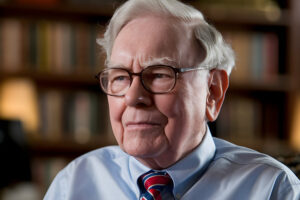Taiwan Semiconductor Manufacturing Company (TSMC), a global leader in semiconductor production, is gearing up to open its first European plant in Dresden, Germany. This significant move is expected to cost over €10 billion, underscoring the pivotal role of semiconductor production in the contemporary tech-centric era.
Recently, TSMC’s board shared their decision through a press release, confirming their plans for the German facility. The announcement revealed that TSMC is looking to invest around €3.5 billion in the new plant.
Delving into the partnership dynamics, TSMC will spearhead the project, holding a dominant 70% stake. However, the endeavor is not solely an Asian pursuit. Three European tech behemoths are set to collaborate with TSMC. They include Netherlands-based NXP, German stalwarts Infineon and Bosch. These European entities will each hold a 10% stake in the joint venture, demonstrating a synergistic East-meets-West alliance in the semiconductor sector.
The collective statement released by the quartet emphasized the scale and shared commitment to the project. “Total investment is expected to exceed €10 billion in the form of equity, debt, and strong support from both the European Union and the German government,” NXP, Infineon, and Bosch asserted.
The establishment of TSMC’s first European base comes at a crucial juncture. Western nations have been increasingly focused on enhancing their grip over semiconductor manufacturing.
The pivotal nature of these microchips can’t be overstated. They serve as the backbone of a plethora of modern devices and machinery, ranging from everyday laptops and vehicles to high-tech defense systems such as missiles.
This endeavor is also set against the backdrop of mounting geopolitical tensions. The relationship strain between China and Taiwan has intensified apprehensions regarding the worldwide microchip supply chain. Given this context, the decision to open a plant in Europe is not merely a business move but a strategic pivot that can potentially alleviate supply chain vulnerabilities.
By cementing its footprint in Europe, TSMC sends a message about the significance of diversified operations. With this venture, the company will be able to offer a more robust and geographically varied production network, ensuring that global demands are met without interruption.
According to industry experts, this new facility in Dresden represents more than just a factory. It symbolizes a collaborative effort to future-proof the global economy against supply chain disruptions.
Moreover, the Dresden plant reflects a broader trend of tech giants seeking stronger partnerships across continents. By aligning with European expertise, TSMC taps into a reservoir of innovation and engineering prowess. This move also bolsters Europe’s tech ecosystem, attracting further investments and talent to the region. It underscores the importance of bridging gaps in a fragmented global tech landscape.
Ultimately, such collaborative ventures are expected to herald an era where international cooperation becomes the cornerstone of technological advancement.













